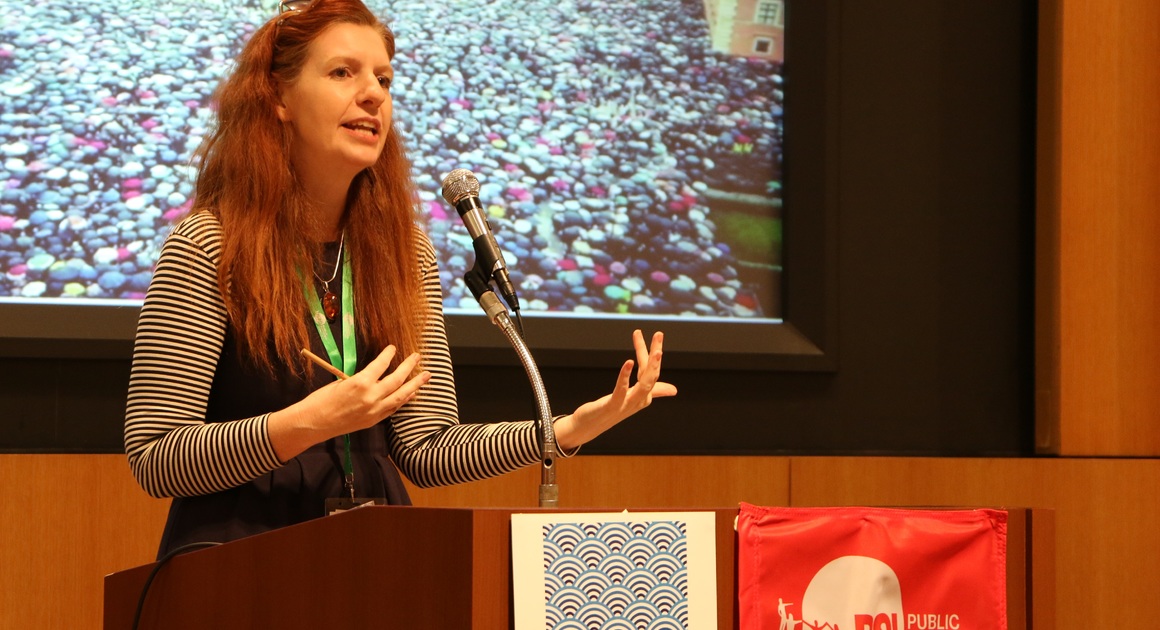-
Tags (13)
- India
- Health & Social Care Services
- Hind Mahila Sabha Indian Women Association
- Nagpur Municipal Corporation Employees Union
- PSI
- News from our affiliates
- Asia & Pacific
- South Asia
- Care
- Health & Social Care Services
- Gender Equality and Equity
- Community Health Work is Work!
- Tamil Nadu Government Officials Union
Community Health Work is Work India announces Health Insurance for Community Health Workers

In a positive development, the Government of India has announced the expansion of health insurance coverage for CHWs under Ayushman Bharat scheme.
- Read this in:
- en

Banaani Deka
In a positive development, the Government of India, as part of its interim 2024 budget, has announced the expansion of health insurance coverage under the Ayushman Bharat (AB) scheme to Accredited Social Health Activist (ASHA) and Anganwadi workers. ASHA and Anganwadi workers are Community Health Workers (CHWs) who have been instrumental in implementing the AB scheme, ensuring AB health cards reach individuals within local communities. Even though the inclusion of approximately 10 lakh ASHA workers, 13.29 lakh Anganwadi workers, and 11.79 lakh helpers into health insurance coverage took six years since the launch of the scheme in 2018, the announcement marks a significant step forward.
Full coverage of medical benefits has been a long standing demand of CHWs in India. Over the decades, they have held protests in the form of demonstrations and rallies, and submitted multiple memorandums.
"Inclusion under Ayushman Bharat health insurance is an accomplishment we have gained after many years of struggle. The inclusion under health insurance coverage is a positive stride towards achieving our demand of universal health coverage” stated Reshma Adagale, a union leader and ASHA worker from Nagpur Municipal Corporation Employees Union (NMCEU). This 100% women workforce working as volunteers form the backbone of the National Health Mission.

Right to health and care is a basic human right. We need a robust public healthcare system that provides healthcare for people, not profit
A paltry payment of INR 8 is paid to ASHA workers for helping issue one AB health card. It takes at least 30-45 minutes to process an AB health card. During a typical working day of 8 hours, maximum of 16 cards can be processed. Therefore, at the end of a working day an ASHA worker earns a meagre INR 128. Archana, ASHA worker and union leader of Hind Mahila Sabha, emphasised, "This is an important win and a small step towards recognition for the work we are doing in upholding the public healthcare system. This is also an incremental move towards our regularisation as permanent workers with decent wages."Kate Lappin, Asia Pacific Regional Secretary of PSI, extended her congratulations to the workers for this positive development. "Right to health and care is a basic human right. We need a robust public healthcare system that provides healthcare for people, not profit,” she said.
AB stands as the world's largest publicly funded health insurance scheme, providing INR 5 lakh coverage per family annually for secondary and tertiary hospitalisation. However, the current focus on major operations in tertiary care hospitals leaves many smaller nursing homes unpanelled. Since the launch of the scheme, states have had the flexibility to adopt various models such as trust, insurance, or a combination of both – known as the hybrid mode – to implement the scheme.
Suganya, an Anganwadi worker and a local level leader of the Tamil Nadu Government Officials Union states, "This achievement gives us a boost towards continuing our struggle for achieving decent working conditions. The workers have persevered, and we take this opportunity to advocate for quality public health and childcare services."

The real benefit to the communities will be felt once the Government recognise the work of CHWs as WORK, provide them rights and make progress to the well-funded public health system
India has one of the highest level of Out-Of-Pocket Expenditures (OOPE) on health in the world. The Economic Survey of India, 2021 highlighted that the OOPE on health contributes directly to pushing a large number of people into poverty. For achieving equitable healthcare for all, there is a crucial need in increasing public spending in healthcare by the government.
Congratulating the workers, Kannan Raman, PSI's Sub-Regional Secretary of South Asia, said “We applaud the workers and government for this win and see this as a first step of the many. The real benefit to the communities will be felt once the Government recognise the work of CHWs as WORK, provide them rights and make progress to the well-funded public health system”.